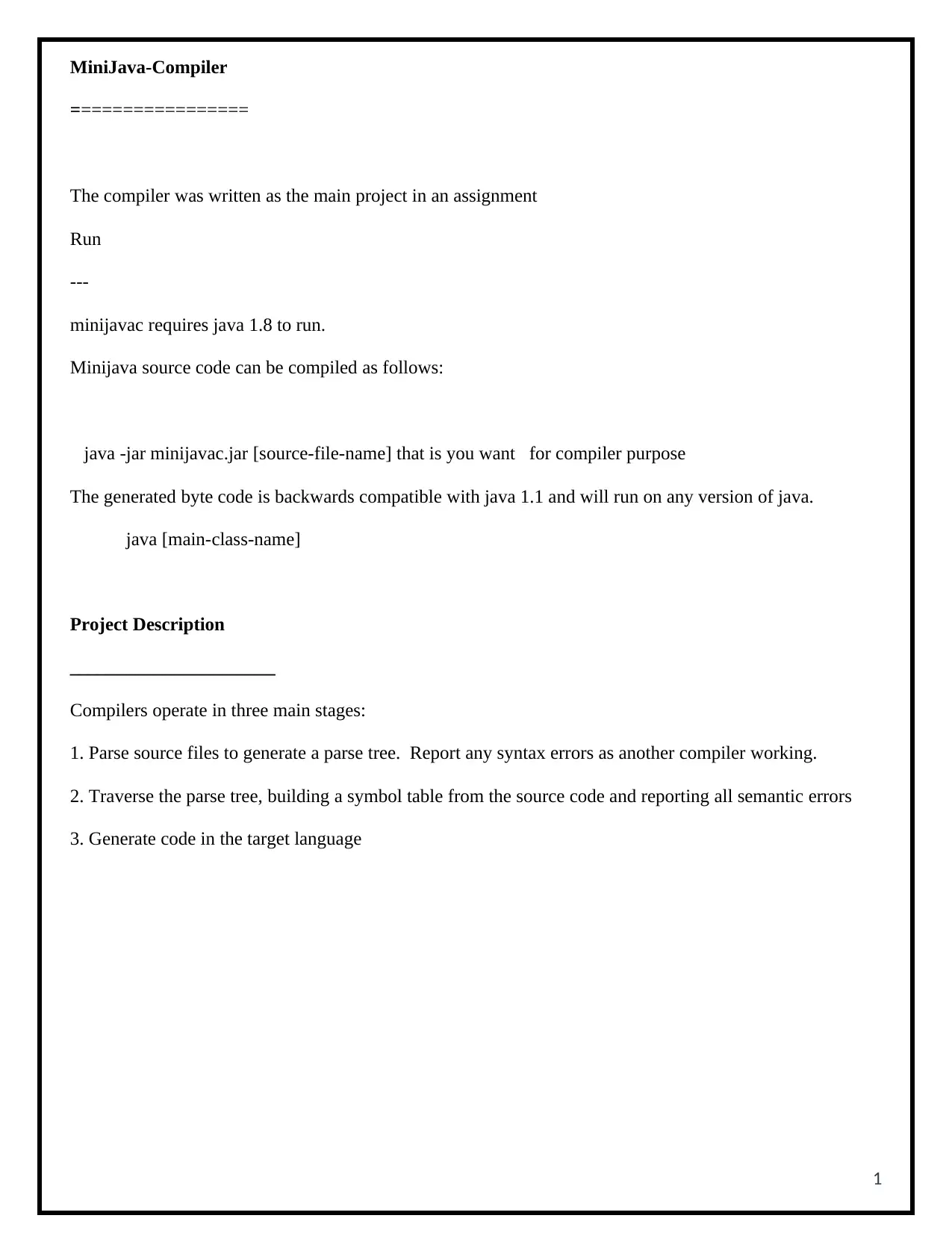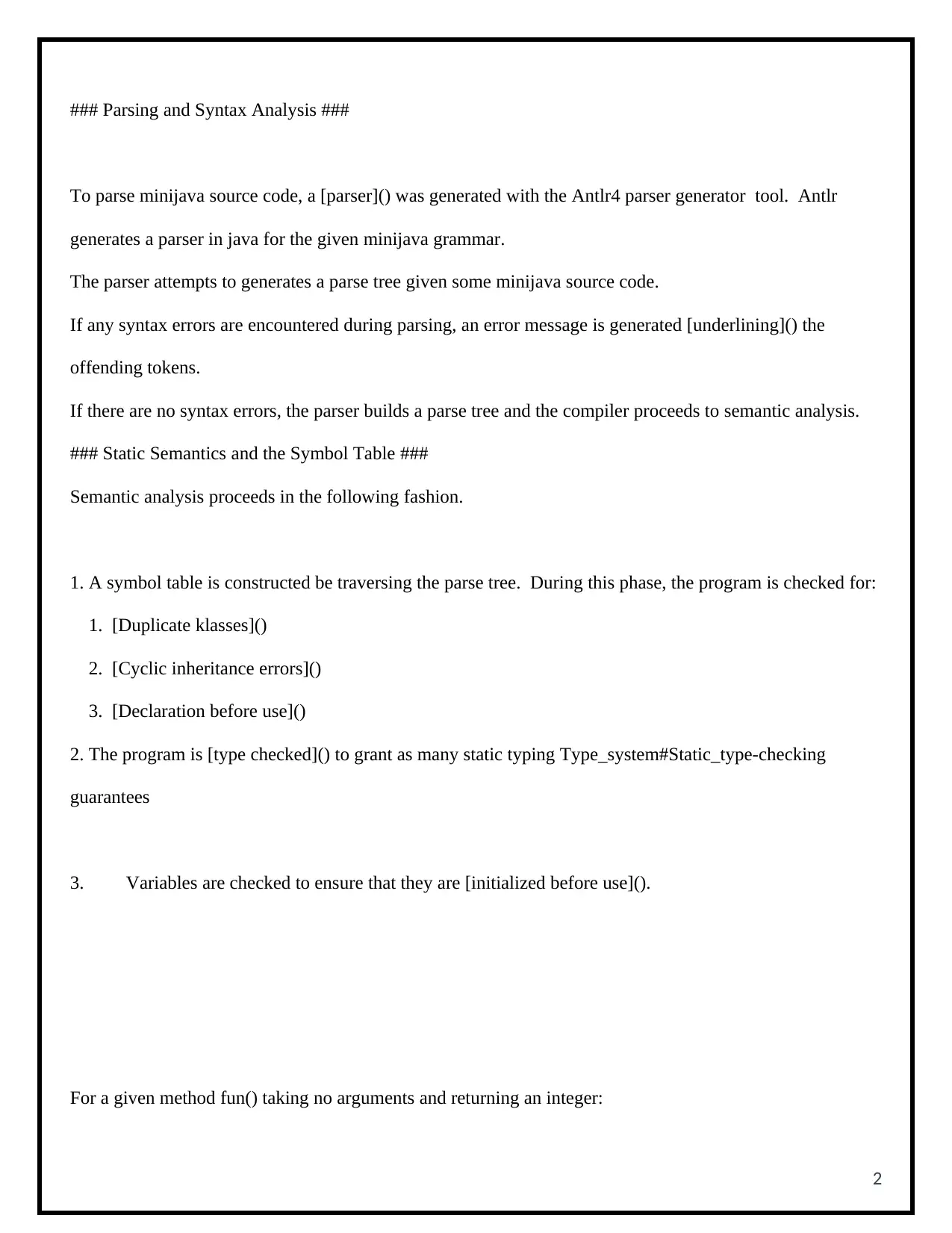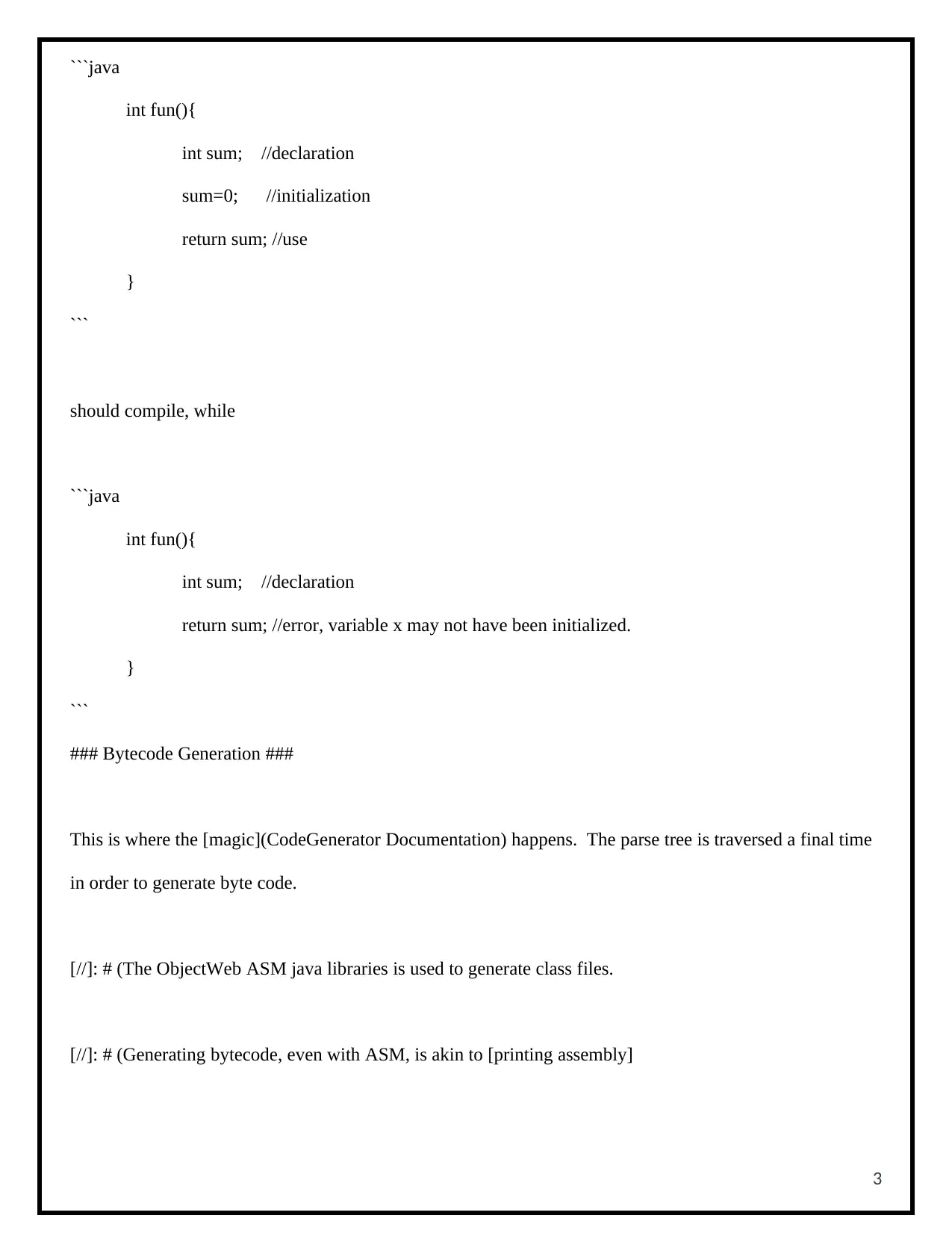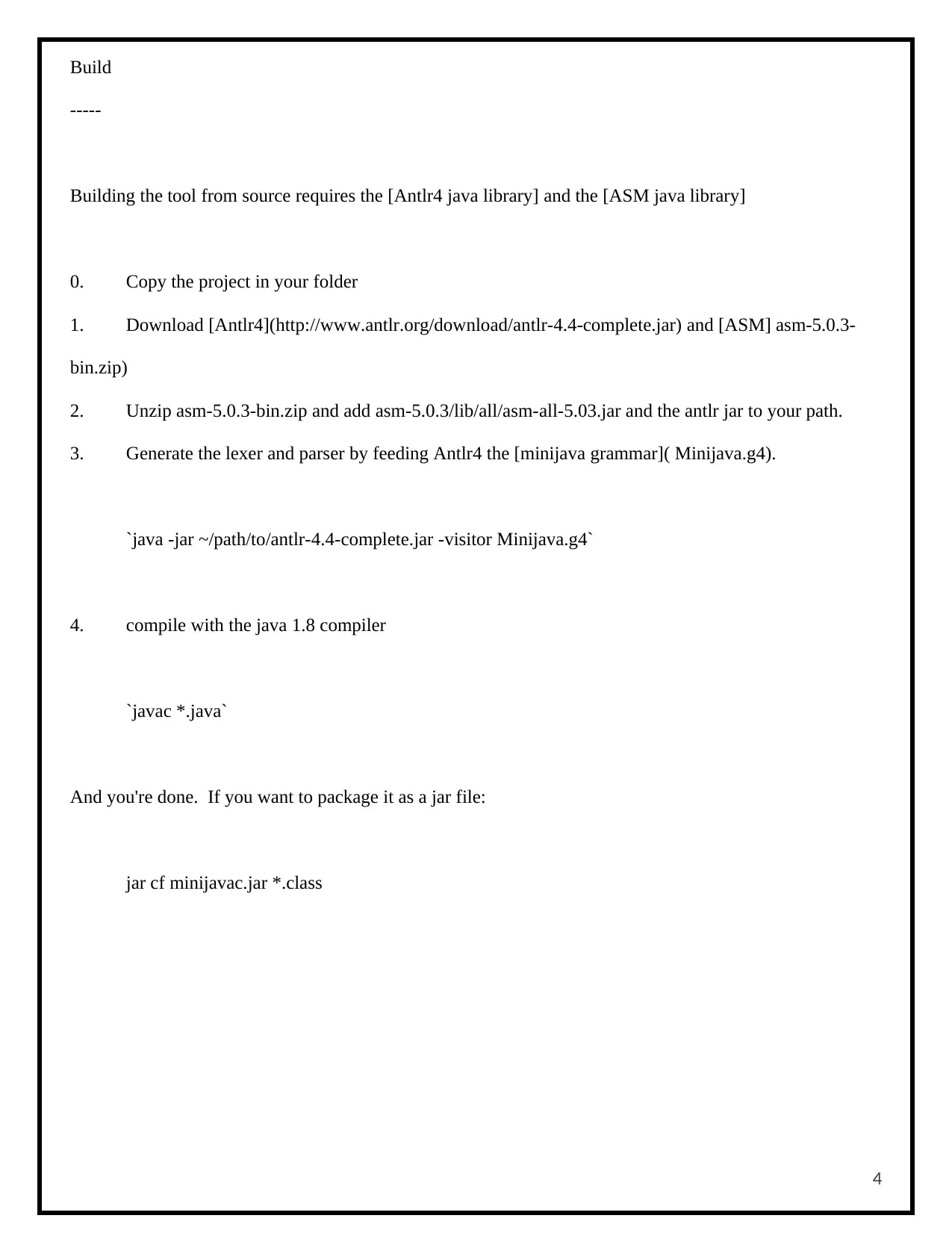CE305 - MiniJava Compiler Project: University of Essex, March 2019
VerifiedAdded on 2023/04/06
|4
|450
|88
Project
AI Summary
This document details the implementation of a MiniJava compiler, developed as a project for CE305 at the University of Essex. The compiler processes MiniJava source code through three main stages: parsing and syntax analysis using ANTLR4, static semantics and symbol table construction, and bytecode generation. It includes features such as error reporting, type checking, and handling of variable initialization. The project also provides instructions on building the compiler from source, requiring Java 1.8, ANTLR4, and the ASM Java library. The compiler generates bytecode compatible with Java 1.1 and includes specifications for basic language notions, control flow structures, and additional features like abstract syntax trees and local variables. The assignment fulfills requirements of using ANTLR with Java, generating Python code, and including modular code with comprehensive documentation. Desklib provides this and other solved assignments for students.
1 out of 4





![[object Object]](/_next/static/media/star-bottom.7253800d.svg)